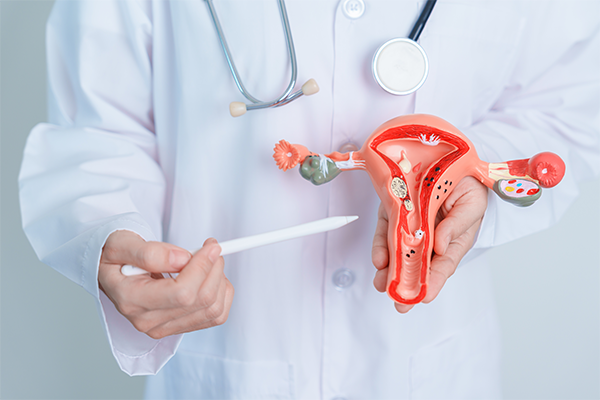
Let’s be honest: talking about gynaecology problems isn’t anyone’s idea of fun. But the truth is, these issues are a normal part of life for women everywhere. Whether you’re in your twenties or your sixties, knowing what’s normal and what’s not can make all the difference to your health and peace of mind. In this blog, we’ll walk you through the most common gynaecological complaints, what they might mean, and when to seek help.
If you’re ever in doubt or need expert care, our expert Obstetrician and Gynaecologist at Manipal Hospitals Gurugram is always ready to listen and support you.
Synopsis
Why Should You Care About Gynaecological Problems?
Gynaecological problems, meaning anything that affects your reproductive health—your womb, ovaries, cervix, vagina, or vulva—can have a huge impact on your daily life. From heavy periods to infections or persistent pain, these concerns aren’t just “women’s problems”—they’re health problems, plain and simple. The list of gynaecological conditions is long, but knowing the basics can help you spot trouble early and get the right treatment.
10 Gynaecological Problems You Should Know About
1. Heavy Periods (Menorrhagia)
If you’re changing pads or tampons every hour or your period drags on for more than a week, you’re not alone. Heavy menstrual bleeding is at the top of the gynaecological disorders list, and it’s one of the most common gynaecological complaints we hear. Causes range from fibroids and polyps to hormonal imbalances. Don’t just put up with it—some treatments can help you reclaim your life.
2. Polycystic Ovary Syndrome (PCOS)
PCOS is a hormonal condition that can cause irregular periods, unwanted hair growth, acne, and weight gain. It’s a classic gynaecological disorder example and a leading cause of fertility trouble. If you’re struggling with these symptoms, there’s no need to suffer in silence. The right support and treatment can make a world of difference.
3. Endometriosis
This is one of those gynaecological problems that’s often misunderstood. Endometriosis happens when tissue similar to the lining of your womb grows where it shouldn’t—like on your ovaries or bowel. It can cause agonising periods, pain during sex, and even fertility issues. Sadly, it often takes years to diagnose.
4. Uterine Fibroids
Fibroids are non-cancerous growths in or around your womb. Some women don’t even know they have them, but for others, fibroids can mean heavy periods, pelvic pain, or trouble getting pregnant. They’re a regular feature in any list of gynaecological conditions and are often picked up during routine checks or scans.
5. Ovarian Cysts
Most ovarian cysts are harmless and go away on their own, but some can cause pain, bloating, or even sudden, severe discomfort if they twist. Persistent or painful cysts should always be looked at. This is one of those common gynaecological issues and treatments that our gynaecologists at Gurugram see every day.
6. Pelvic Inflammatory Disease (PID)
PID is an infection that affects your womb, fallopian tubes, or ovaries. Sexually transmitted bacteria usually cause it, and if left untreated, it can lead to long-term pain or fertility problems. PID is a key entry in the list of gynaecologic infections, so don’t ignore symptoms like pelvic pain, fever, or unusual discharge.
7. Cervical Cancer
Cervical cancer doesn’t always show symptoms early on, but abnormal bleeding, pain during sex, or odd-smelling discharge can be warning signs. Regular smear tests are your best defence. This is one of the most serious conditions on the gynaecological disorders list, so never skip your screening.
8. Vaginal Infections
From thrush to bacterial vaginosis, vaginal infections are prevalent. Signs include itching, unusual discharge, or a strong odour. Some infections can lead to bigger problems if not treated, so don’t be embarrassed to seek help. Our team at Manipal Hospitals Gurugram will always treat you with respect and care.
9. Menopause & Perimenopause
The transition to menopause can bring a whole host of changes—hot flushes, mood swings, sleep problems, and vaginal dryness. While it’s a natural part of life, severe symptoms can be managed with the right advice and support.
10. Pelvic Organ Prolapse
This happens when the muscles supporting your pelvic organs weaken, often after childbirth or menopause, causing organs like your bladder or womb to drop. You might feel a bulge or pressure in your vagina. It’s not uncommon and can be treated, so don’t suffer in silence.

Spotting the Signs of Gynaecological Problems
Knowing the signs of gynaecological problems can help you catch issues early. Look out for:
-
Unusual bleeding or discharge
-
Persistent pelvic pain or bloating
-
Pain during sex or when you pee
-
Itching, lumps, or sores down below
If anything feels off, trust your gut and get it checked. Early action is always best.
Gynaecological Treatment
Treatment depends on the problem. Sometimes lifestyle changes or medication are enough; other times, you might need a minor procedure or surgery. The key is not to wait—help is available, and you deserve to feel your best.
You know your body better than anyone else. If something doesn’t feel right, don’t brush it off. There’s no shame in seeking help—only strength. And remember, you’re never alone on this journey. Our experts at one of the best gynaecology hospitals in Gurgaon are always here for you.
FAQ's
Heavy periods, pelvic pain, unusual discharge, and irregular cycles top the list of gynaecological conditions women face.
If you notice any signs of gynaecological problems—like pain, bleeding between periods, or odd discharge—it’s worth getting checked out.
Yes, conditions like PCOS, endometriosis, and PID can impact fertility, but early treatment can help.
Common infections include thrush, bacterial vaginosis, PID, and sexually transmitted infections.
The Obstetrics and Gynaecology specialists at Manipal Hospitals Gurugram are here to provide expert, compassionate care for all your women’s health needs.





















 5 Min Read
5 Min Read





















